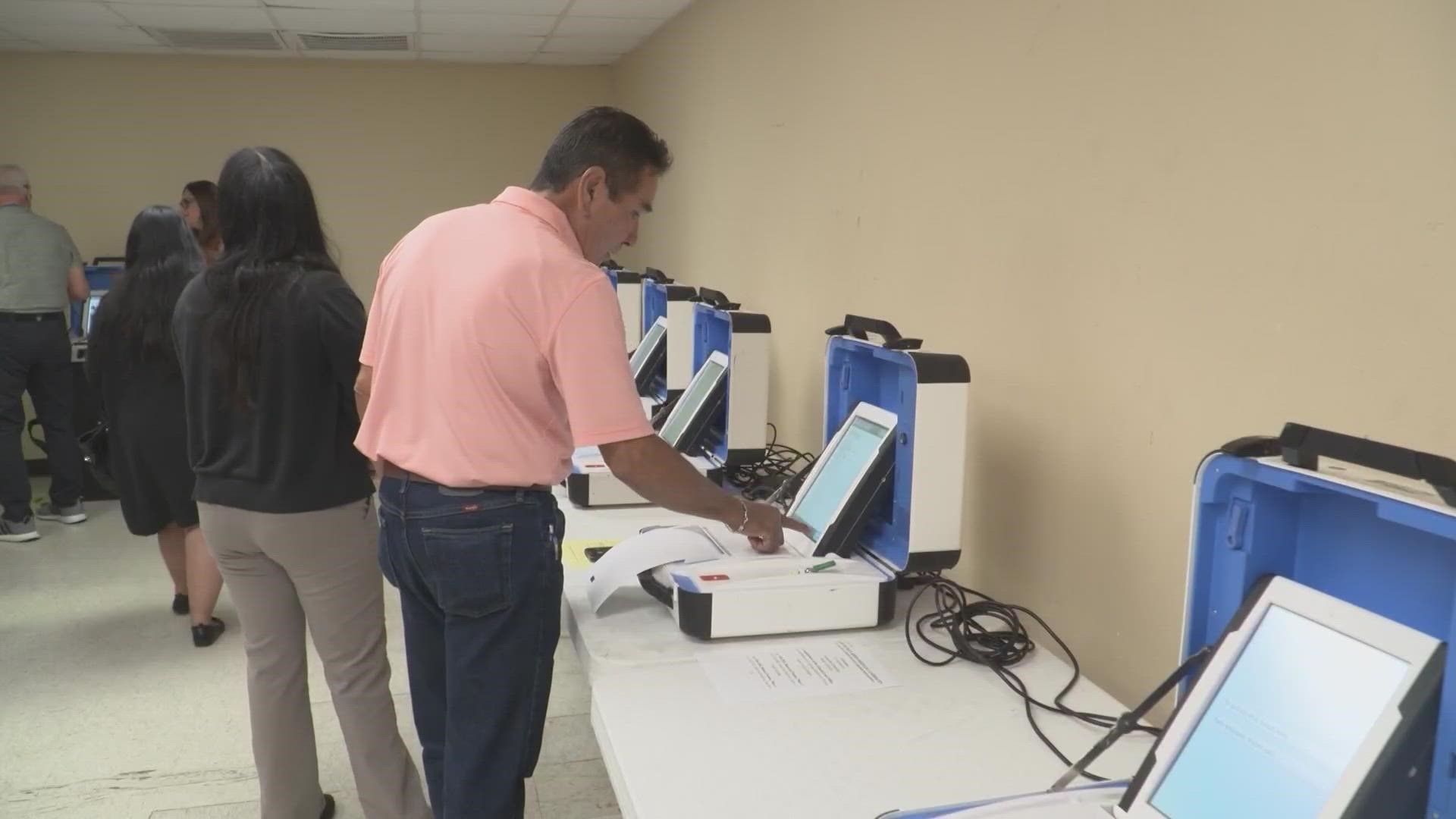SAN ANTONIO — Elections experts warn a little-known component of Texas law will soon upend the voting process, potentially delaying or muddying results.
By 2026, counties must replace their voting systems with technology that doesn't yet exist.
"It links back to the 2020 election," UTSA political science professor Jon Taylor said. "It links back to the whole fight between Trump and so-called 'voter fraud.'"
Texas lawmakers convened for a special legislative session in 2021 to tighten voting laws, even though there was no evidence that supported former President Donald Trump's claims of widespread election fraud.
In a sweeping measure, lawmakers rolled back some voting options Texans used during the pandemic. Democrats failed to block the legislation, despite a dramatic attempt to stall the vote by fleeing Texas for Washington, D.C.
A single sentence included in the measure, which Gov. Greg Abbott signed, bans technology vital to the current voting process.
"In essence, you're basically getting rid of technology in elections altogether," said Ryan Macias, an elections consultant with RSM Election Solutions. Macias previously served as Acting Director of the Voting Systems Testing and Certification Program for the U.S. Election Assistance Commission.
Today, most Texas voters cast their ballots on a voting machine that prints a sort of receipt, which is fed through a scanner. The scanner records the votes and the receipt is deposited into a box that can only be opened for review under certain conditions.
Results from each ballot scanner are typically written to a special storage device, similar to a USB drive, and delivered to a central tabulation location. There, data from the storage device is uploaded to a counting computer.
But in 2021, lawmakers barred elections administrators from using a "centrally counted optical ballot scan system that uses a data storage disc on which information, once written, is capable of being modified."
Instead of using the reusable USB drives to collect and upload data, lawmakers prefer a storage device similar to a CD-R. Once data is burned to the disc, it cannot be wiped and reused.
To oversimplify the problem: voting machines don't have disc burners, Macias explained.
"In practical senses, there is no technology like that out there," he said. "Even if there was, you'd have to buy a brand new piece of technology for every single election" because the law bans reusable storage devices.
"You'd use it for a primary, then throw the system away. Buy a new one for the general, and throw it away. Next year, another primary - throw it away. And so on and so forth," Macias said.
It would cost taxpayers $116 million in 2026 to replace current voting systems with the technology Macias says doesn't exist. The Secretary of State's office told lawmakers it would then cost taxpayers about $40 million every other year to repeatedly replace the systems' storage devices.
"It's 1995 again and we're doing bootlegs of Depeche Mode," Taylor joked. "Your current desktop computers - How many of them have CD players? Answer is: none."
To comply with the law, Macias says, elections administrators would almost certainly need to count ballots by hand.
"If you conducted an election, it is going to take a lot longer. It is going to be less efficient. It is going to be less secure. It is going to be less accurate," he added.
This component of the law does not take effect until 2026, meaning lawmakers have two legislative sessions to clean up the language. Macias maintains there is a way to rewrite the law and honor lawmakers' intent, without relying on technology that doesn't exist.
"We're not the only state doing this, if that will make people feel good or bad," Taylor said.

